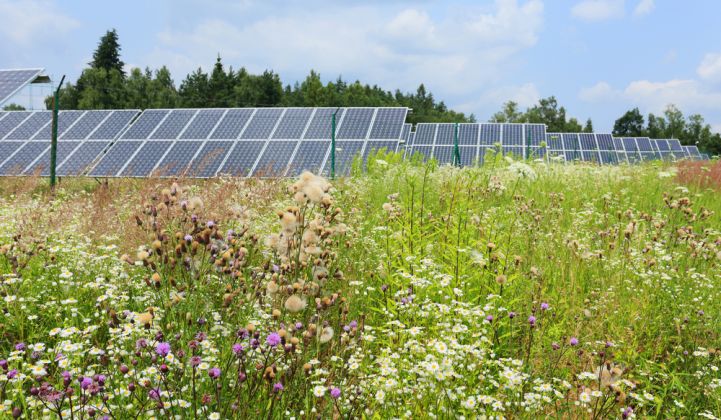The environmental impact arm of investment management and holding company Power Corporation of Canada this week took full ownership of U.S. community solar developer Nautilus Solar.
The acquisition fits within the broader trend of institutional investors dipping into solar, and the community solar space in particular. The purchase also marks the first U.S. play for Power Energy Corporation, the Power Corp. subsidiary that focuses its investments on companies with an environmental impact.
“The U.S. is a huge market. I like to say that it’s 10-to-1 scale between the U.S. and Canada; it’s probably more than that in renewables,” said Pierre-Olivier Perras, president of Power Energy Corp. “We looked at the U.S. market for awhile and felt the community solar space is where we wanted to be.”
Perras added that the “long, predictable cash flow” and “longstanding useful life of the assets” associated with renewables jibes with the steady dividend goals of Power Energy Corp. and its parent.
Power Energy Corp. will add Nautilus to an existing stable of clean-energy-related companies. It fully owns solar and wind developer Potentia, which mostly focuses on the Canadian market, and has partial stakes in electric bus and truck manufacturer Lion Electric Company and LED lighting company Lumenpulse.
Though New Jersey-based Nautilus also acquires, develops, builds, finances and manages municipal, utility and large commercial solar projects, the community solar sector remains its focus. And because that market requires local knowledge and connections to bring in and manage subscribers, Perras said Nautilus provides a good “entry point” into the U.S. market.
“You need a bit more agility to operate in the community solar space, you need to have a strong local understanding [and] the financing is a bit more difficult because you’re smaller-scale,” Perras told Greentech Media. “But that comes with higher returns. We like that sector, and we feel it’s the future to be closer to the client.”
Laura Stern, a co-CEO of Nautilus, said the acquisition provides the 13-year-old developer with clarity for the future and competitive capital so it can focus on scaling. Its current pipeline is 50 to 100 megawatts per year.
“This transaction does bring competitive capital; it also brings benefits of being wholly owned by such a well-capitalized company,” said Stern. “We have the unusual perspective of having the benefit of a long-term ownership horizon.”
The Nautilus acquisition rides a growing trend of institutional capital scooping up community solar developers. In April, North American Infrastructure Fund bought developer Clean Energy Collective, National Grid bought Minnesota-based Geronimo Energy in March, Global Infrastructure Partners acquired NRG (now Clearway Energy) in 2017 and Clean Focus Yield acquired Greenskies that same year.
Like Nautilus, those other developers dabble in other areas of solar, like commercial or utility-scale projects, as well as community solar. But Michelle Davis, a senior solar analyst at Wood Mackenzie Power & Renewables, told Greentech Media in April that a focus on community solar is becoming a financially savvy option.
“Community solar is the fastest-growing and often most lucrative opportunity for [commercial and industrial] developers,” said Davis.
This latest acquisition from “large capital providers that typically have more conservative views on the market” further proves the growing excitement around community solar within the larger industry, said MJ Shiao, director of corporate strategy and business development at community solar startup Arcadia Power. Arcadia is working with Nautilus on a project in Rhode Island.
“You have these large energy players that are looking for the next exciting thing…and choosing community solar because it truly has a lot of legs,” said Shiao.




